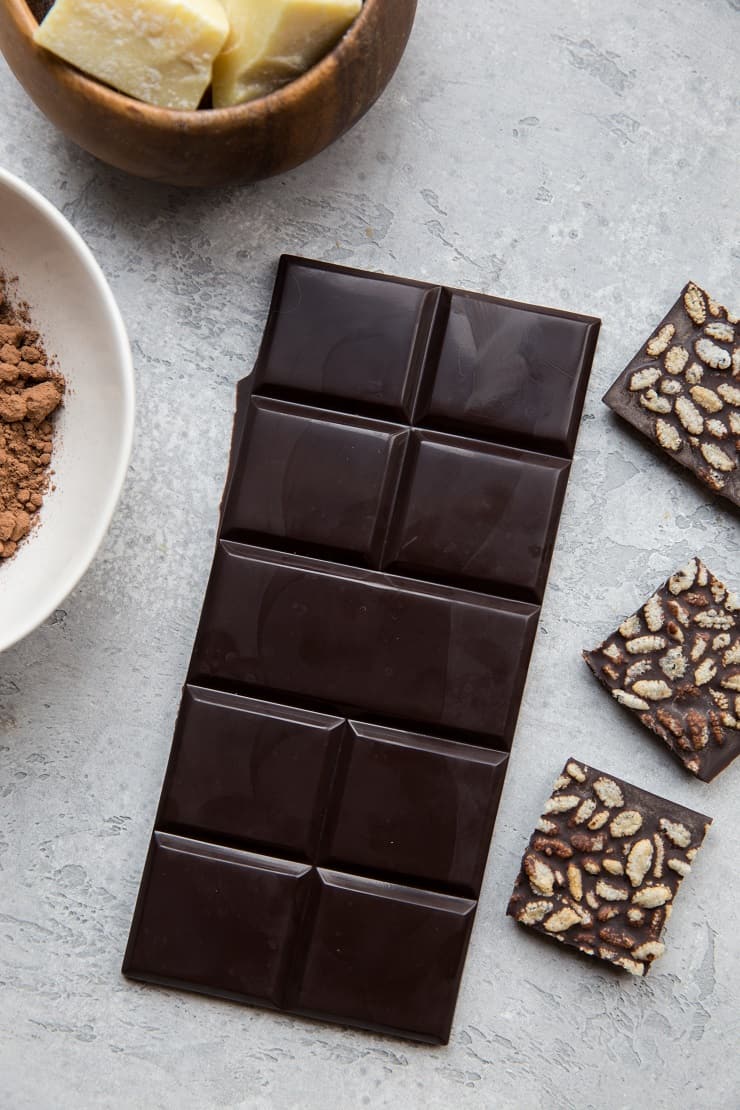Dark chocolate, often hailed as a decadent treat, is more than just a sweet indulgence. When enjoyed in moderation, it offers powerful health benefits—especially for your heart and brain. Thanks to its high cocoa content and rich concentration of antioxidants, dark chocolate is a nutritional powerhouse wrapped in a velvety bite.
Let’s explore its nutritional profile, health benefits, and how to choose the best dark chocolate for your diet.
🍫 What Is Dark Chocolate?
Unlike milk chocolate, which contains lower cocoa levels and higher sugar and milk content, dark chocolate is made with 50–90% cocoa solids, cocoa butter, and minimal sugar. This gives it a more intense flavor and a higher concentration of beneficial compounds such as flavonoids, antioxidants, and minerals.
📊 Nutritional Highlights
Dark chocolate is packed with beneficial nutrients:
- Flavonoids (like epicatechin and catechin): Potent antioxidants that reduce inflammation and oxidative stress.
- Essential minerals: Iron, magnesium, copper, manganese.
- Fiber and protein: Present in small but meaningful amounts.
❤️ Heart Health Benefits
Dark chocolate is especially good for your cardiovascular system. Here’s how it supports heart health:
-
Rich in Flavanols
These compounds enhance blood vessel function, improve circulation, and help reduce blood pressure. -
Antioxidant Protection
Antioxidants help neutralize free radicals, lowering oxidative stress and protecting against heart disease. -
Cholesterol Regulation
Studies show it may increase HDL (good cholesterol) and lower LDL (bad cholesterol), supporting arterial health. -
Reduced Stroke Risk
Moderate consumption of dark chocolate has been linked to a reduced risk of stroke in several studies. -
Blood Pressure Control
Flavanols stimulate nitric oxide production, helping relax blood vessels and lower hypertension.
🧠 Brain Health Benefits
Dark chocolate also does wonders for the brain:
-
Enhanced Cognitive Function
Improved blood flow to the brain may boost focus, memory, and learning capacity. -
Mood Lifting Compounds
It contains caffeine, theobromine, and phenylethylamine—natural stimulants that can elevate mood and reduce stress. -
Neuroprotection
Antioxidants protect brain cells from damage, potentially lowering the risk of Alzheimer’s and Parkinson’s disease. -
Supports Neuroplasticity
Flavanols encourage the brain’s ability to form new connections, aiding mental agility and adaptability.
🍫 How to Choose the Best Dark Chocolate
Not all dark chocolate is created equal. For maximum health benefits:
- Choose 70% cocoa or higher: More cocoa means more antioxidants.
- Opt for low sugar: Avoid overly sweetened options that cancel out the benefits.
- Check the ingredients: Go for products with minimal processing and no artificial additives.
🧁 Tips for Enjoying Dark Chocolate
- Moderation is key: Stick to 1 ounce (28g) a few times a week.
- Pair it wisely: Enjoy with berries, nuts, or even red wine for added health synergy.
- Avoid milk chocolate: It contains more sugar, dairy, and fewer beneficial compounds.
🧑⚕️ Final Thoughts
Dark chocolate isn’t just a luxurious treat—it’s a functional food that supports your heart, brain, and overall wellness. When consumed in moderation and paired with a healthy diet, it can be a guilt-free pleasure with lasting health rewards.
Disclaimer: Consult with your healthcare provider or dietitian before making any significant dietary changes, especially if you have specific health concerns like diabetes or heart conditions.
🔍 Meta Description:
Discover the powerful health benefits of dark chocolate for your heart and brain. Learn how to choose the best dark chocolate and enjoy it as part of a healthy lifestyle.





